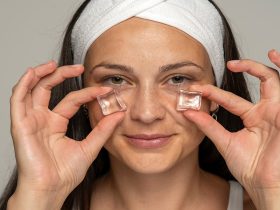Mental health recovery for teenagers requires a unique approach that addresses their specific developmental needs while providing comprehensive therapeutic support. The journey to wellness often demands more than traditional outpatient therapy offers, especially when teens face complex emotional and behavioural challenges.
A comprehensive treatment approach serves as a cornerstone for meaningful recovery. Through structured daily routines, therapeutic interventions, and constant professional support, teens begin to understand their challenges and develop effective coping strategies. This environment provides the safety and stability necessary for deep emotional healing and personal growth.
Many residential treatment centers for youth have developed specialized programs that combine evidence-based therapies with holistic approaches to healing. These centres create environments where teens focus entirely on their recovery while receiving support from experienced mental health professionals who understand adolescent development and the unique challenges this age group faces.
The therapeutic process in residential treatment extends far beyond traditional counselling sessions. The activities that teens engage in throughout the day range from individual therapy to group sessions, experiential activities, and skill-building workshops. This immersive approach helps reinforce positive behaviours and new coping mechanisms in real-time.
The recovery journey requires professional support. A therapist, psychiatrist, and behaviour specialist work together to develop individualized treatment plans for teens. These professionals provide constant guidance and support, helping teens navigate challenges while building resilience and emotional regulation skills.
Family involvement represents another crucial element of successful recovery. Through regular family therapy sessions, parents learn to understand their teen’s challenges better while developing skills to support their child’s healing journey. This collaborative approach helps create a stronger foundation for continued recovery after the residential program ends.
Educational support remains integral to the treatment process, ensuring teens don’t fall behind academically while focusing on their mental health. Specialized teachers work alongside therapeutic staff to create learning environments that accommodate each student’s emotional needs while maintaining academic progress.
The peer community within residential treatment provides unique opportunities for social learning and support. The struggles of teens are not exceptional, and they learn from those who are facing similar challenges. This peer support often becomes a powerful catalyst for change, helping teens develop healthier social skills and relationships.
Looking toward the future, residential treatment programs focus on developing practical life skills that support long-term recovery. Teens learn stress management techniques, communication skills, and emotional regulation strategies they apply in their daily lives after treatment. This preparation helps ensure a smoother transition back to home and community life.
Through this comprehensive approach to mental health recovery, residential treatment provides teenagers with the tools and environment they need to heal and grow. The structured setting, professional guidance, and therapeutic community work together to create lasting positive change, helping teens build a stronger foundation for their future mental health and overall well-being.
Success in residential treatment requires commitment from all involved parties: the teen, their family, and the treatment team. When everyone works together toward common goals, the potential for lasting positive change increases significantly. This collaborative approach helps ensure that the progress made during treatment continues well after the program ends.






